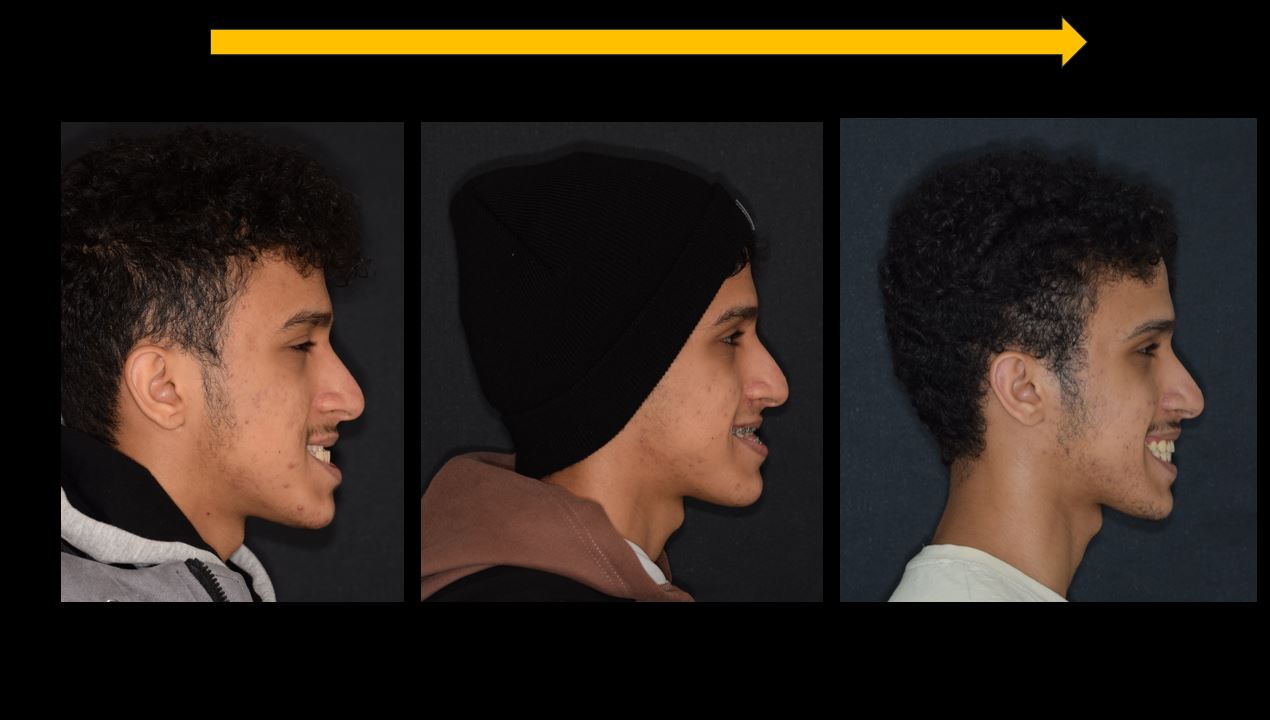If you are contemplating on having orthodontics followed by jaw surgery, you must first ask these important questions to your healthcare providers. Probable answers are given for your easy reference.

Why do I need jaw surgery?
In order to align teeth and provide a functioning bite, the supporting bones of dental arches must be in the correct position and relationship. Hence, orthodontics alone will not correct the bite. Surgery will be required to move the jaw bones into proper matching positions so that the upper and lower teeth will then meet ideally.
If I need jaw surgery, why do I also require orthodontics?
If the jaw bones are to be moved to correct positions and relationship, it is absolutely necessary your teeth are aligned and fine-tuned so that they will meet properly after surgery.
What type of braces will I need to wear?
Fixed braces are used prior to jaw surgery because they permit the most accurate positioning of the teeth prior to the operation.
Are the braces removed just before the operation?
No, the braces are kept intact during and after the operation for a number of months. During the operation, they help the surgeon to adjust the jaws correctly. After the operation, they help the orthodontist to settle the bite with the aid of elastic bands.
How will the operation be done, and will my jaws be wired together for sometime after the operation?
The operation will be done from inside your mouth. The available modern techniques enable us to avoid wiring of the teeth for 6 to 8 weeks. Small metal surgical plates are used to hold the fracture sites together. These plates on the surface of the bone but beneath the skin remain in place forever.
Very occasionally they are removed at a later date.
How long will I be in the hospital, and can I eat normally?
This varies, but generally 1 day. You can be on liquid and soft diet during the first week after surgery. In the subsequent weeks, gradually normal diet is resumed. It is important to take care of your teeth and brace by regular tooth brushing, rinsing and flossing during the course of whole treatment for healing in the shortest possible time.
Are there any after effects?
You will have some swelling and bruising after the operation. However, this will rapidly subside over a period of 3 to 4 weeks. Related to lower jaw operations, it is common to have numbness of the lower lip for several months. In a very small percentage of cases a residual numbness area will remain. This numbness will not affect the movement of your lip, only the feeling in it. You expect to be off work at least two weeks in the aftermath of surgery.
Will I look noticeably different after the operation?
You will look different to some degree. The change in appearance will depend on the extent of jaw movement performed. You should discuss this with your orthodontist and oral-maxillofacial surgeon.
They can give you an accurate simulation of final look using the sophisticated software which they routinely use for their treatment planing.
How long will the overall treatment take?
On average, it takes 12 to 36 months, but will vary according to how severe your case is. Failed and cancelled appointments i.e. no shows or repeated breakages of the brace will add to the total treatment time.
How often will I need an appointment?
You will need frequent and regular appointments with the orthodontist during treatment for the brace to be adjusted. The orthodontist will schedule appointments in conformity with the patient’s treatment progress.
Do I still need to see my regular dentist?
Yes. It will be important you still have regular check-ups with your regular dentist throughout orthodontic treatment. Your orthodontist will not be treating tooth decay or gum disease.
